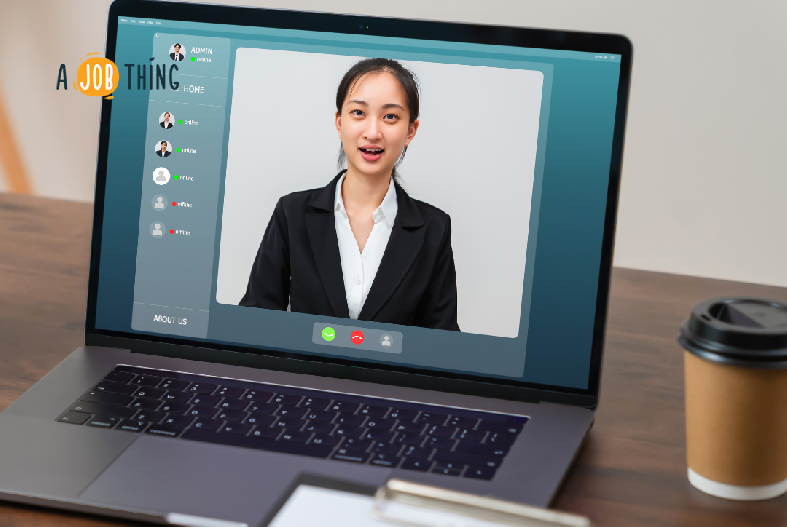
What Are Video Interviews?
Are You Hiring?
Find candidates in 72 Hours with 5+ million talents in Maukerja Malaysia & Ricebowl using Job Ads.
Hire NowVideo interviews allow you to evaluate candidates from a distance. Rather than meeting face-to-face or talking on the phone, hiring managers and recruiters can conduct virtual interviews with candidates using video interview software (e.g., SparkHire, Jobma) or methods of communication (e.g. Zoom, Skype, Hangouts).
A video interview is typically preferred during the early hiring stages to screen many applicants quickly and efficiently. It's also helpful when applicants and interviewers are in different cities and can't meet in person. They're also great for reaching talent and potential, such as remote applicants or employees who favour flexible work schedules.
Employers who want to undergo video interviews during the hiring process should have video interview tools and basic video interview equipment; in this case, your computer's built-in microphone, camera, and speakers will suffice. It's also helpful to consider where to conduct video interviews; a peaceful room with no interruptions is ideal.
What are the various kinds of video interviews?
There are two types of video interviews: one-way and two-way. The video resume or application is also a subcategory that fits here. Although it is not an interview, it is a type of video evaluation.
Two-way video interview
This is the most widely known type of video interview, a synchronous or live video interview. Candidates and interviewers connect to the same video call and conduct their interviews in real-time, regardless of where they are. Two-way video interview processes are especially beneficial when:
- Applicants and hiring managers are in separate areas and prefer to conduct the interview remotely to save time.
- Interviewers want to screen many candidates during the early hiring stages without dealing with additional logistics (preparing candidates for the office, booking meeting rooms, etc.).
- Because interviewers are located in different offices, it is more convenient for them to connect with candidates via video conference interviews.
- Because the rest of the team is distributed, there is no physical office for an in-person interview.
When inviting applicants to a video interview, specify how they will join the video call. To avoid any confusion, send them instructions via email. Here are two invitations you could send: A video interview email template, as well as a Skype interview invitation email template are provided.
Video interview in one direction
You may have also heard it as an "on-demand video interview" or "recorded video interview". This interview is asynchronous, as compared to the two-way interview. The interviewer asks all applicants to respond to a series of questions, which they record and submit via the video interview tool.
The following are the primary advantages of one-way video interviews for candidates:
- They save time by not having to travel to your office buildings for an interview.
- They will feel more at ease conducting the interview from their own space.
- They will have more time to think about their answers if they are aware of the questions ahead of time.
- Alternatively, they can select the best recording if they have multiple takes.
Typically, applicants can record an answer, watch the video, and either finalise it if they are satisfied or try again. This is reassuring for applicants who want to make a good first impression, and it makes for a better applicant experience overall.
Employers benefit from recorded video interviews because they save time. Instead of planning and conducting individual phone, video, or in-person interviews, they can send the same requirements and instructions to all applicants for a position and evaluate answers at their leisure. Real-time interviews can also be difficult in situations where:
- The interviewees and candidates are in different time zones.
- Applicants are already employed and have specific limitations to coming to your office for an interview.
- Interviewers are juggling several open jobs or are preoccupied with their regular job responsibilities and need help finding available spaces on their calendars.
One-way video interviews work best early in the selection process, when recruiters and hiring managers are looking for deal breakers or essential criteria. Consider a marketing position that necessitates excellent interpersonal skills or a customer care role that requires fluency in a second language. Here are some commonly discussed questions asked during the first phases of the hiring process during video interviews:
- What motivated you to apply for this position?
- What makes you an excellent candidate?
- Demonstrate how you would prepare a presentation for X product.
Remember that some candidates may need to be more familiar with this interview style, so include some video interview practice exercises. Candidates will have the opportunity to experiment with the video interview platform and learn how it works before answering the actual interview questions. Learn more about how recorded video interviews can help your hiring process.
Visit the HR Library to acquire all relevant HR resources.
Contact here for more information on hiring employees.

